eBay's Market Strategy In Focus As Key Business Development Leaders Exit
UPDATE 1-4-25
More eBay business development and strategy leaders have jumped ship to Temu with eBay UK Category Lead for Automotive & Business and Industrial, Arjang Salehi taking a Senior Business Development Manager position under Dr. Zheng (Tony) Tong.
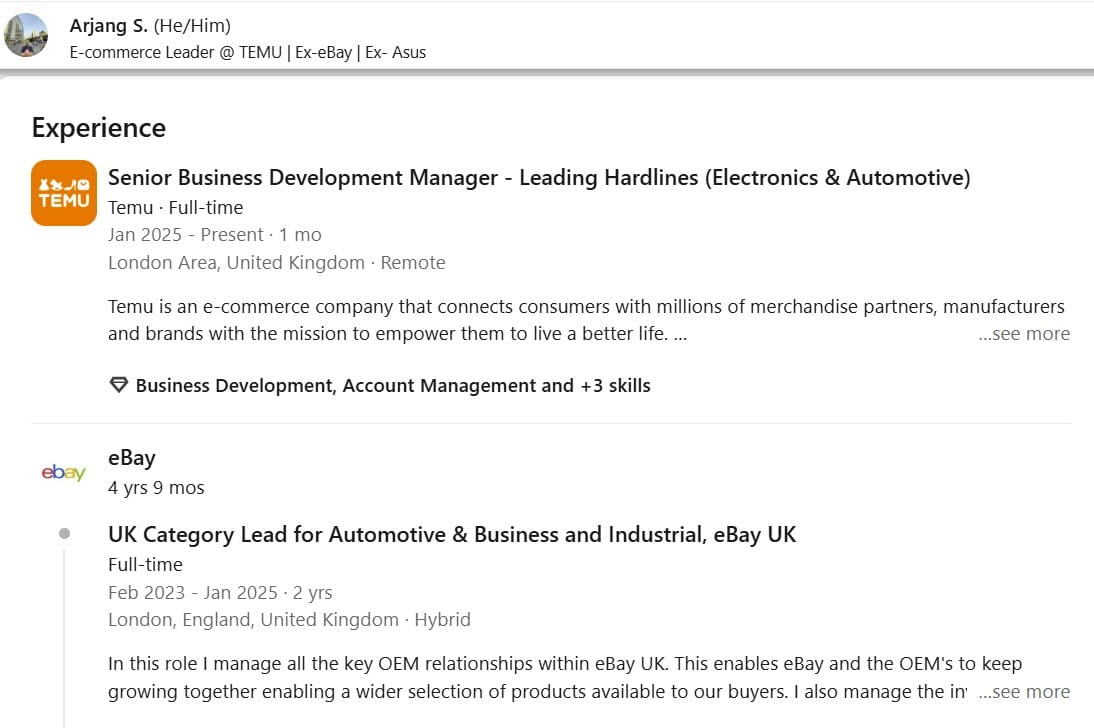
eBay's Business Development team is undergoing significant changes as competitors attract talent, raising questions about the company's growth strategy and approach to emerging market opportunities.
Head of Business Development Europe, Middle East, and Africa, Daniel Biran, departed eBay this month after almost 8 years at the company to take on Head of Direct to Consumer Sales role at TikTok.
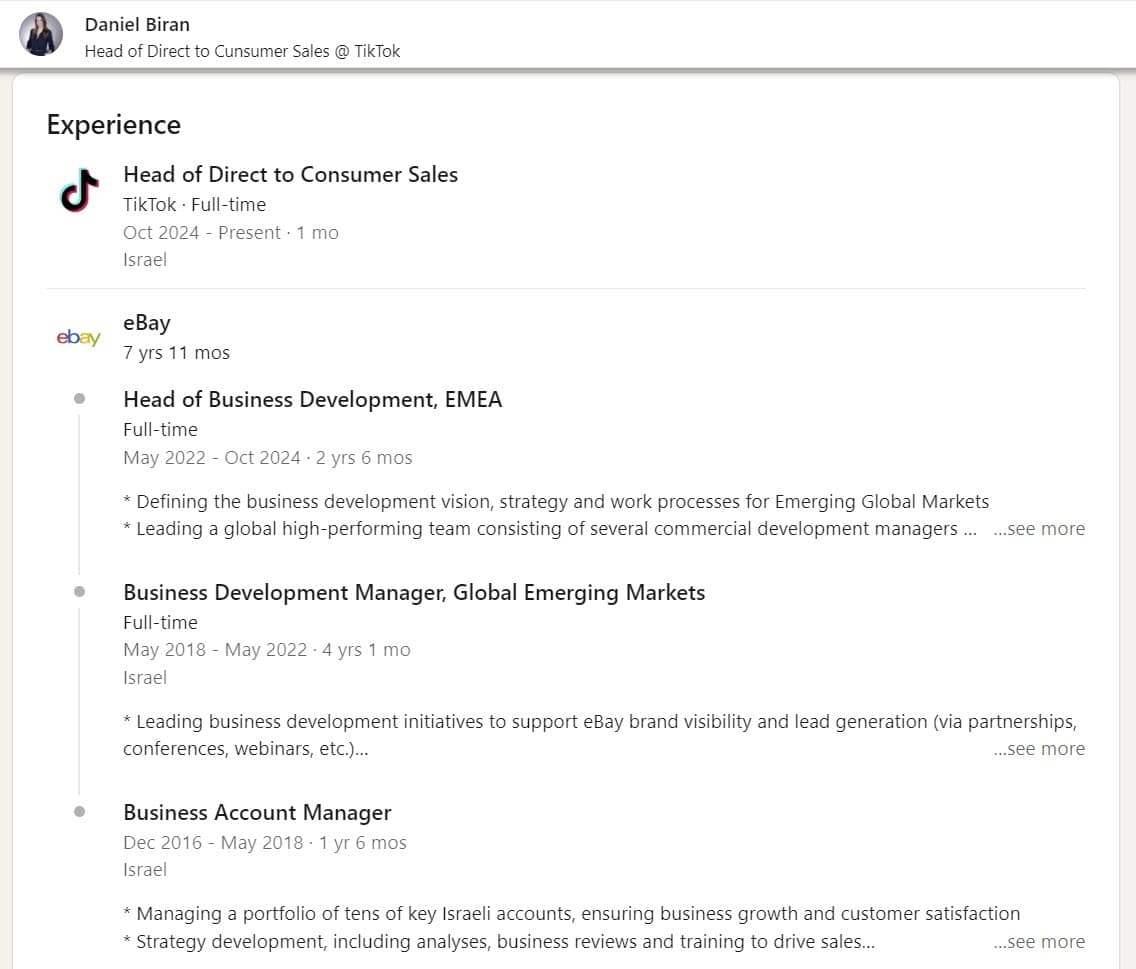
UK Director of Hardline and Planning, Dr. Zheng (Tony) Tong left last month to become Business Development and Commercial Director at Temu

Interestingly, his announcement on LinkedIn also served as a recruiting pitch for the "high performing team" he is assembling at Temu - it will be interesting to see if more eBayers will be joining him soon.
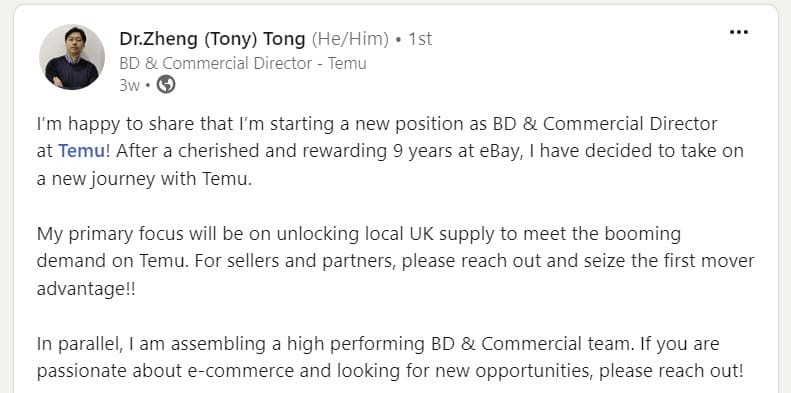
eBay CEO Jamie Iannone has shrugged off suggestions Temu is eating into the company's market share and GMV while quietly undertaking initiatives to grow cross border sales from China.

Does Temu also represent an internal threat in the competition for talent and employee retention?
And Head Of Business Development US Stephen Weller has also announced his departure after 5+ years at the eBay, though he has not yet revealed where he'll be landing next.
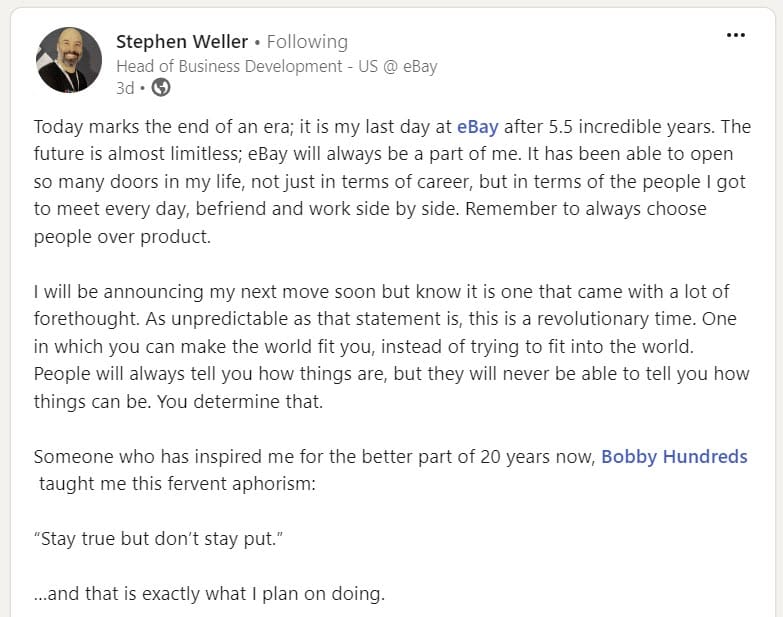
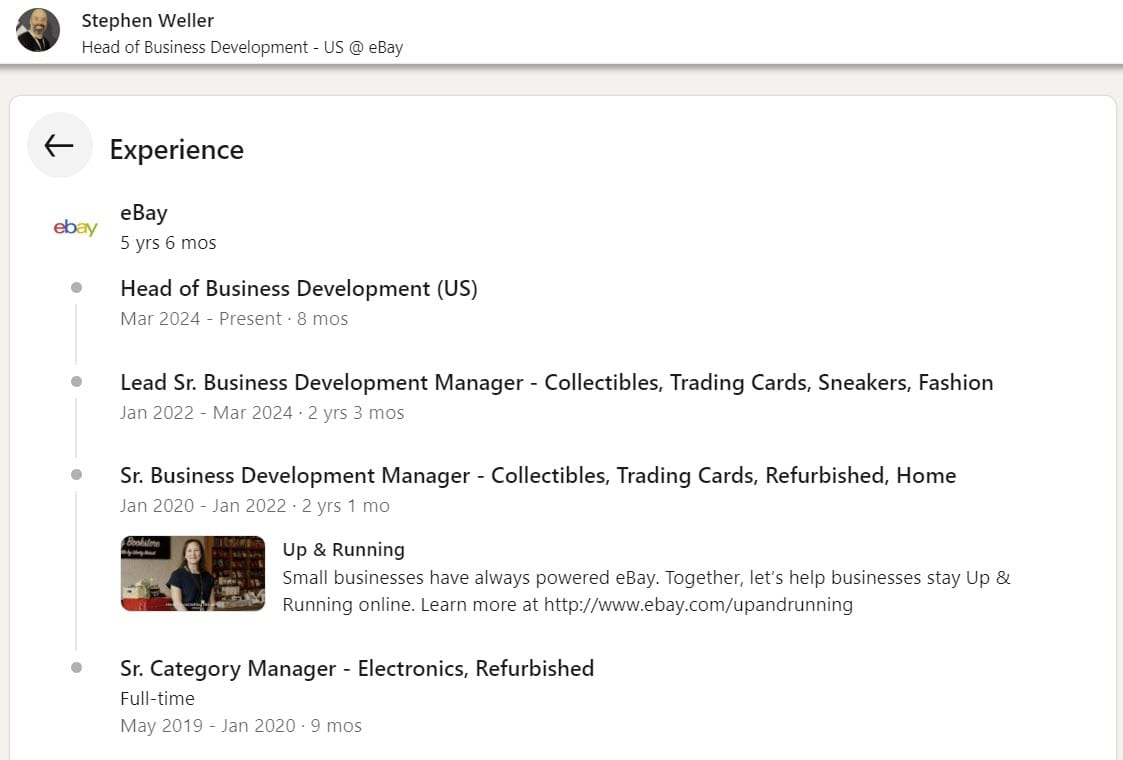
Weller appeared on the recently discontinued eBay For Business podcast back in August, giving sellers tips on how to jumpstart slow sales.

This Business Development leadership shakeup comes at a time of shifting strategy for the company that started with Chief Business Strategy Officer Stefanie Jay resigning earlier this year.
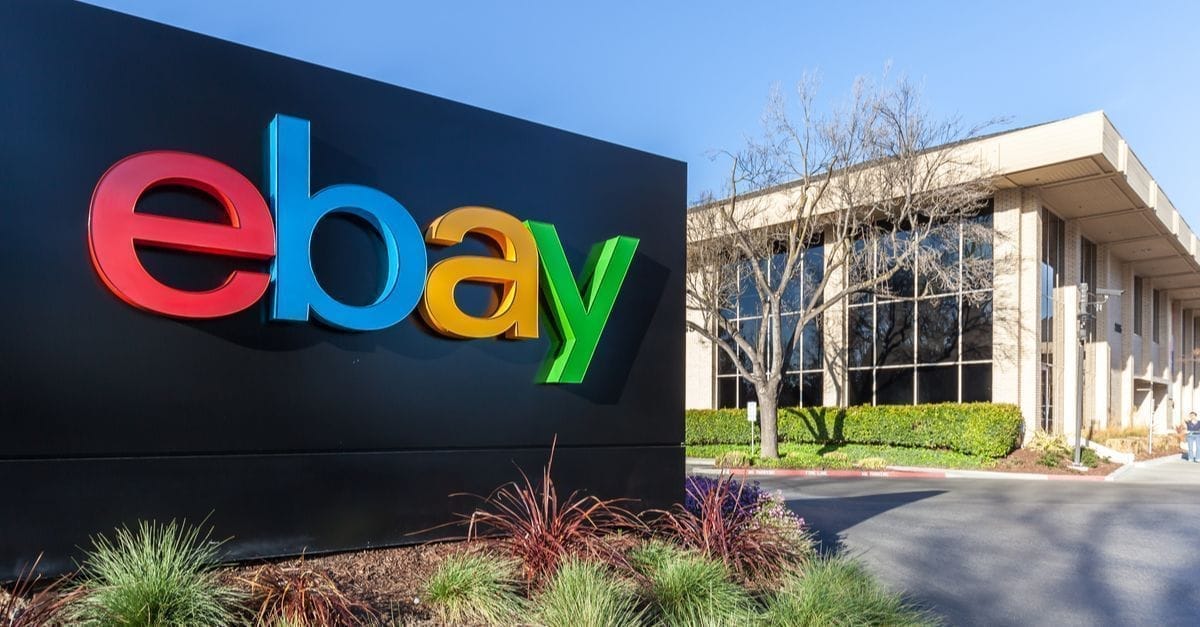
As part of that shift, eBay has slowly been pivoting from exclusionary "high value buyer focus verticals" back to the larger consumer to consumer segment of the marketplace that has historically been the foundation of eBay's success.
Most of the Consumer to Consumer (C2C) shift so far has taken place in Germany and the UK, with fee-free selling for private non-business sellers and efforts to encourage more local shopping on the platform.
The recent expansion of fee-free selling in the UK is a major part of this C2C push, with a dedicated team working to implement what eBay internally has been calling the "fix the fundamental aspect of UK Win back plan."

But while eBay trumpeted fee-free selling with a huge media blast, they buried the "bad news" in a much less publicized 8-K filed with the SEC - buyer fees are coming to the UK in 2025.

Other competing marketplaces have gone this same route over the last year, leaving eBay looking like a desperate follower tagging along with much smaller and newer niche players rather than being the innovative industry leader they should be after almost 3 decades in the game.
Etsy-owned Depop initially shifted fees to buyers in the UK before expanding their new fee structure to the US in July, but being a more narrowly focused marketplace may have made that transition easier for buyers as other competitors in that space, like Vinted, already used a similar pricing model.

Mercari also changed the fee structure on their US marketplace in March and they may be a better corollary to eBay in terms of broader category selection.

So far results have been mixed for Mercari with an increase in abandoned carts due to initial lack of transparency about the buyer-facing fees and pushback on how high the variable fee may be, forcing Mercari to commit to capping buyer fees at 10%.
Mercari US CEO John Lagerling even had to admit the new fee structure had not resulted in the GMV performance they had hoped when internally announcing a layoff of ~45% of US staff in June.

Mercari is an ecommerce giant in Japan, where the business does very well, but their US marketplace has struggled significantly, especially once the general pandemic-era ecommerce boom waned.
Making a risky hail Mary attempt to shake things up with a new fee structure is one thing when your business is already on the ropes, but that is not the case for eBay.
And most recently, eBay is clearly reacting to shots fired by Vinted Pro in the UK aimed at enticing disgruntled business sellers to switch platforms.

It's unclear if eBay is replacing these recent departures with fresh blood, promoting internally or simply consolidating roles and piecing the work out to existing hires, but one thing that is clear is eBay must move much faster to gain back market share that has been lost and turn the tide back to sustainable long-term growth for the company.

























